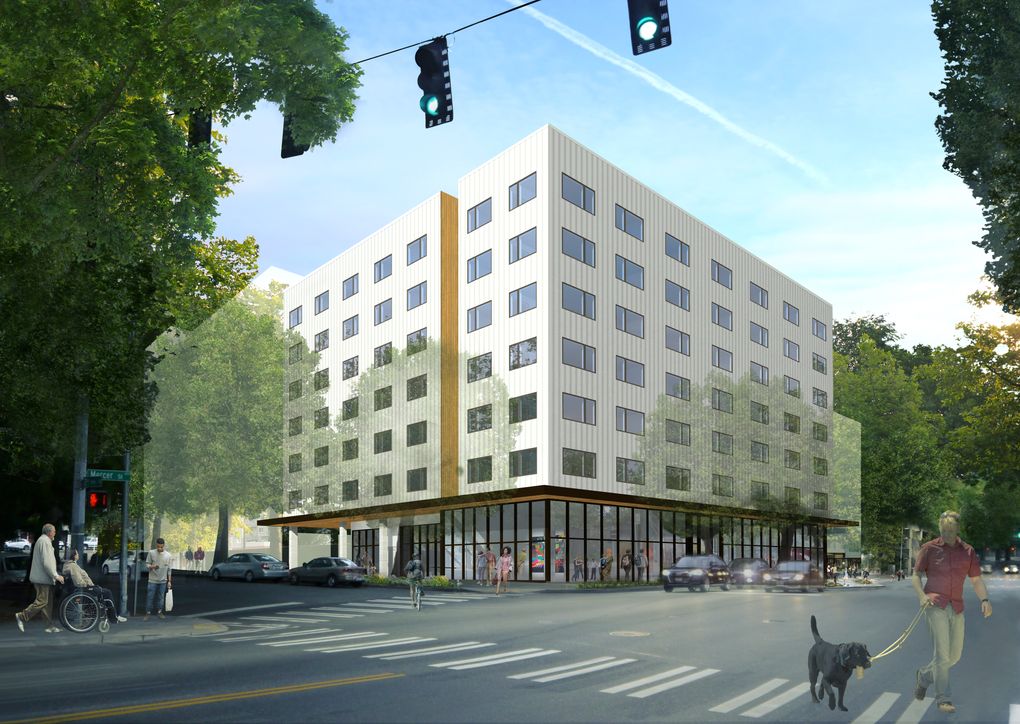“Can’t something be done about homelessness?” That’s the refrain we hear from friends, colleagues, neighbors, public officials and news media. With more than 11,000 people experiencing some form of homelessness in King County, we recognize that there’s a crisis at hand. What is not widely recognized is that something is being done about the most deeply seated form of homelessness. We just need to do more of it — and with greater urgency.
The challenge is that homelessness is complex. Our neighbors who are living on the streets, in cars and in temporary shelters do not all have the same needs. Their paths into homelessness are diverse, and their roads out of homelessness are equally varied. Some are experiencing temporary economic setbacks and others suffer from chronic physical and behavioral disabilities. Some require a small amount of support, and others require a great deal. There is no one-size-fits-all solution.
Those with the greatest needs are perhaps the least understood, despite their high visibility within our community. Single adults experiencing chronic homelessness have often struggled to find and keep stable housing. Many, if not most, of them live with disabilities, mental-health disorders and substance-use disorders. Meanwhile, our social safety net is frayed. Public resources to address any of these personal challenges are few and far between, and homelessness itself has added additional traumas for these individuals to overcome.
The physical and behavioral conditions that lead to or result from chronic homelessness are often addressed through acute interventions — such as jail time, emergency-room visits, or temporary shelter stays. These carry a high cost both for the person and for public funds without addressing the systemic problem of a lack of stable, affordable housing.
For single adults experiencing chronic homelessness — of which there are thousands in King County — there is an answer. Several organizations here have pioneered what has become a national model known as “Housing First,” by which our most vulnerable adults are offered a pathway to stability, breaking the cycle of chronic homelessness. Namely, through permanent supportive housing: studio apartments with on-site social and medical support, integrated into urban settings with accessibility to social services.

Plymouth Housing is one of the largest providers of permanent supportive housing for single adults in Seattle. Plymouth has a proven success rate of 94%. More than 9 out of 10 people who become Plymouth residents remain off the streets permanently. The annual cost of housing at Plymouth is about the same cost as three days at Harborview or three months in the King County jail.
Our society faces some significant challenges: an aging population; the traumatic effects on veterans of modern warfare; a lack of comprehensive mental-health care; and more. The increased need has far outpaced the availability of housing units with integrated support services. And it is up to all of us — not just government, not just business, not just private individuals — to come together to build effective, sustainable solutions.
Those experiencing chronic homelessness are our neighbors who have suffered for years, bouncing from one shelter to another, coping with the instability that is homelessness. They are also survivors, and when offered the opportunity for a home and the comprehensive support they need, they can thrive.
Plymouth Housing’s PROOF Campaign, which was announced on June 11, will enable Plymouth to accelerate construction of eight new buildings with 800 permanent supportive apartments. It will also fund an endowment, ensuring Plymouth’s residents have the support they need for the long term, and restorations to the five historic downtown Seattle buildings in Plymouth’s care. This is the largest scale effort ever undertaken in the city and county to address adult chronic homelessness. Clearly, this effort is not the only answer. But it is one important step in the journey to being the place that we are all proud to call home.
Leave a Reply